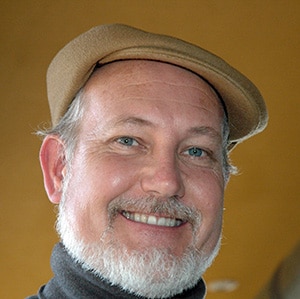
(By Roy Williams) The reason most radio people write poorly is because they read too many blogs, tweets, news stories, and Facebook posts.
As you read, so will you write.
Maxwell Rotbart asked me to name 10 books he should read. When I asked the purpose of this reading, Maxwell said, “I just want to know what great writing sounds like.”
I said, “Do you want to read the best stories, or do you want to read the best writing?”
“I want to read the best writing.”
I quickly named seven books before I began to struggle. Dozens of other titles were flickering through my mind, but they were mostly examples of great storytelling, employing marvelous narrative arcs and character arcs, but my list was to be about great writing: sentence construction, word selection, vivid description, and sequencing of mental images.
Every major style of great writing I could think of was already represented on my list.
Here it is:
- Travels With Charley — John Steinbeck
East of Eden is a better story, but Charley will teach you more about writing. Let Steinbeck show you how to unveil a mental image from an interesting perspective, restrain yourself from saying too much, and delight your reader with unexpected observations and connections. A second example of a well-written book-without-a-plot is Steinbeck: A Life in Letters, the personal letters written by Steinbeck to his friends between 1923 and 1968
- The Poetry of Robert Frost
Frost communicates bigger ideas in fewer words than any writer I have ever read. Let him teach you the power of metaphor, the magic of meter (rhythm,) and the use of the perfect word.
“At his simplest, his most rhythmical and cryptic, Frost is a remarkable poet. He is surely that. In other words, if you were chopping wood, that chore had some kind of universal significance to Frost. If you were picking apples, this has a general conclusive principle somewhere involved in it, or with it, in some way. This localizing way of getting generalities to reveal themselves, like universal design, original sin, love, death, fate: Frost found a way to do this, to make anything that has ever concerned mankind relate to a New England farm.”
— James Dickey, Classes on Modern Poets and the Art of Poetry, p. 126
- One Summer: America, 1927 — Bill Bryson
Some of the best advice I offer writers is this: “Take your inspiration from wherever you find it, no matter how ridiculous.” Bill Bryson is the best example of this. It is impossible not to be devastated by his fascinating choices of subject matter, his deep research, obvious restraint, and amazing phrasing.
- The Old Man and the Sea — Ernest Hemingway
This very short book put Hemingway over the top to win the Nobel Prize in Literature. Let Ernest teach you how simple observations, clearly stated, have impact.
- Hawaii — James Michener
Michener will teach you patience and attention to detail. If objective reality and clarity are your goals as a writer, Michener and Hemingway are the voices you want echoing in your mind as you write.
- One Hundred Years of Solitude — Gabriel Garcia Marquez
Magical realism isn’t fantasy or science fiction. It is the straight-faced, deadpan inclusion of magical or unreal elements in an otherwise realistic or mundane environment. And no one does it better than Gabriel Garcia Marquez. This is the opening line.
“Many years later, as he faced the firing squad, Colonel Aureliano Buendia was to remember that distant afternoon when his father took him to see ice.”
- Still Life With Woodpecker — Tom Robbins
On the third day of the Magical Worlds Communications Workshop at Wizard Academy, we teach chaotic writing. No one explains it better than Tom Robbins.
“Everything in the universe is connected, of course. It’s just a matter of using imagination to discover the links, and language to expand and enliven them … I always start with three or four completely unrelated big ideas, and maybe a character or two who have ostensible connections neither to each other nor to any of the big ideas … I never begin with more than the vaguest idea of the plot. To pull that off with an acceptable degree of artistry, one must write very, very slowly … and be able to hold a great many things in one’s mind.”
“It went ‘whoosh’ as it shot by, a sleek panatela of frozen light, pulsating with polka dots of every color, traveling, a mere thousand feet or so above the water, at incredible speed and mopping up the last of the sunset as if it were a bar rag from outer space.”
— Tom Robbins, describing a UFO in Still Life With Woodpecker
Better writers make sparkling sales presentations.
Better writers craft better ads.
Want to become a better writer?
You’ve got some reading to do.





